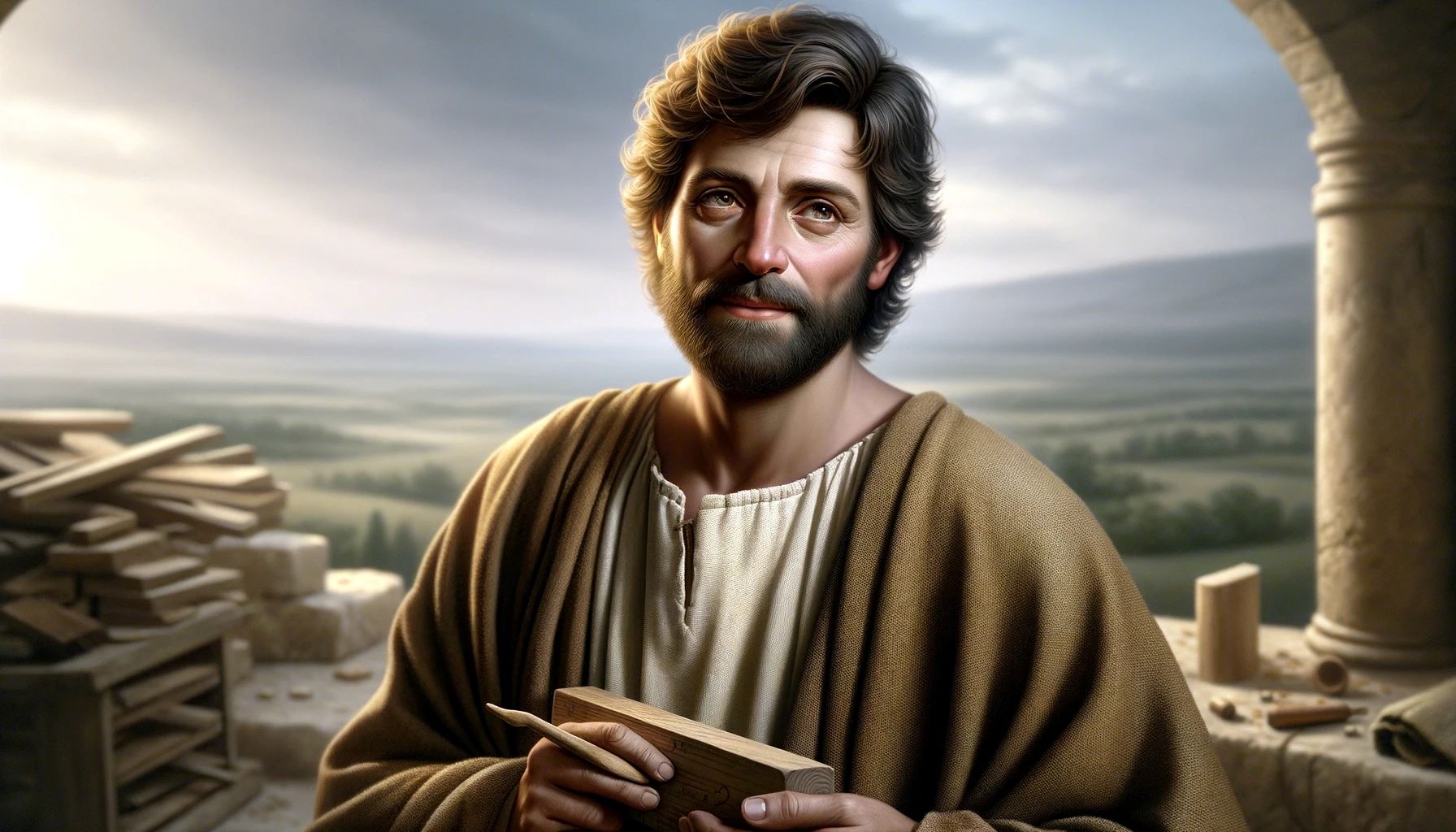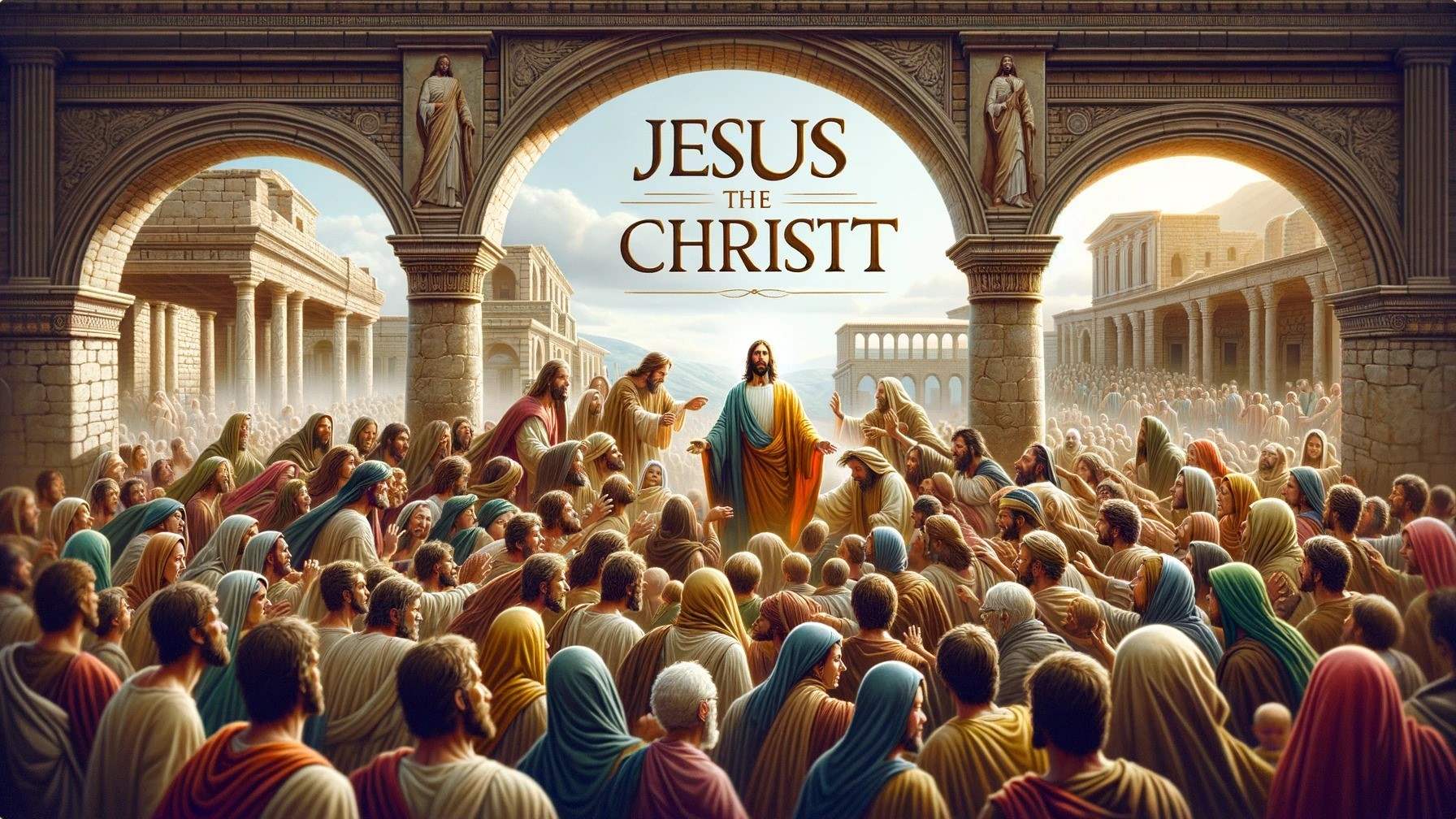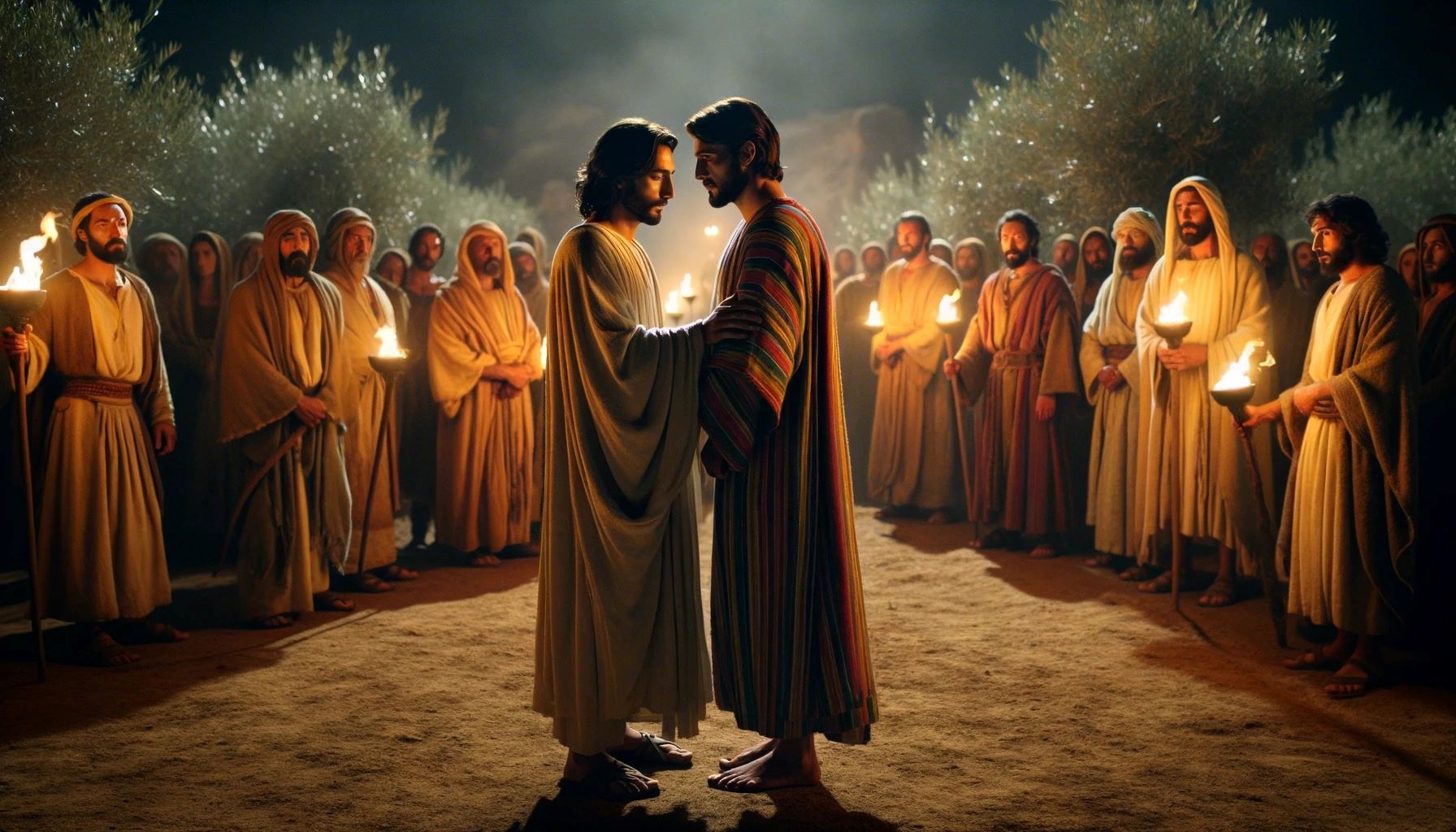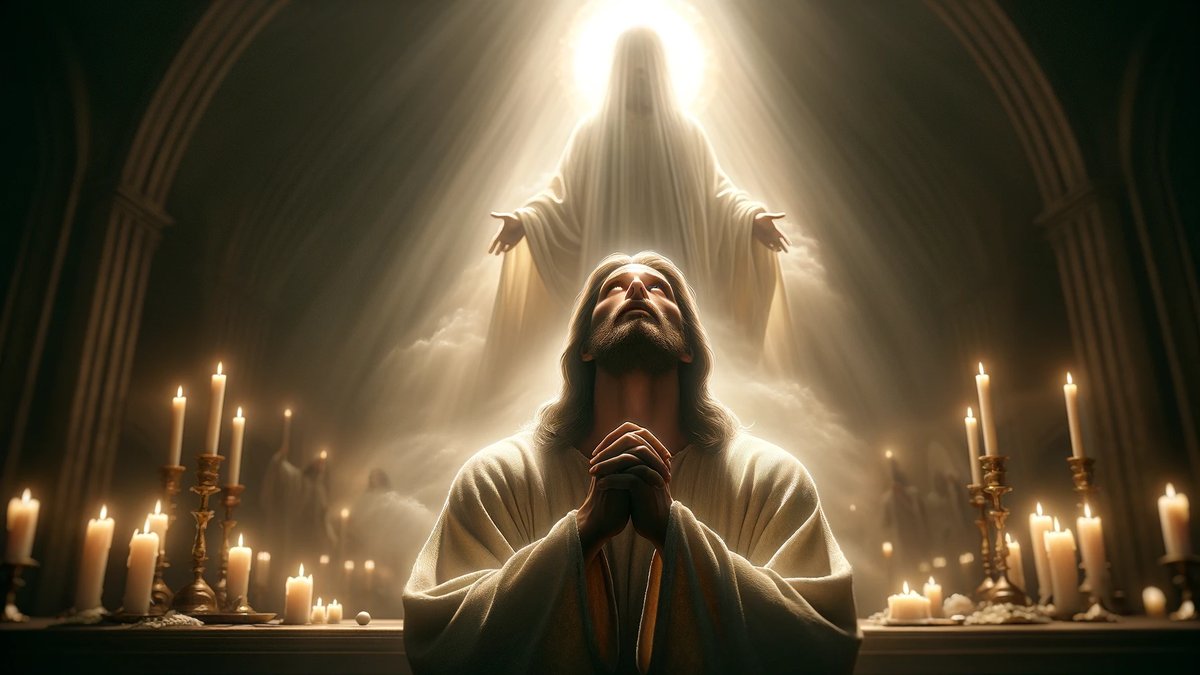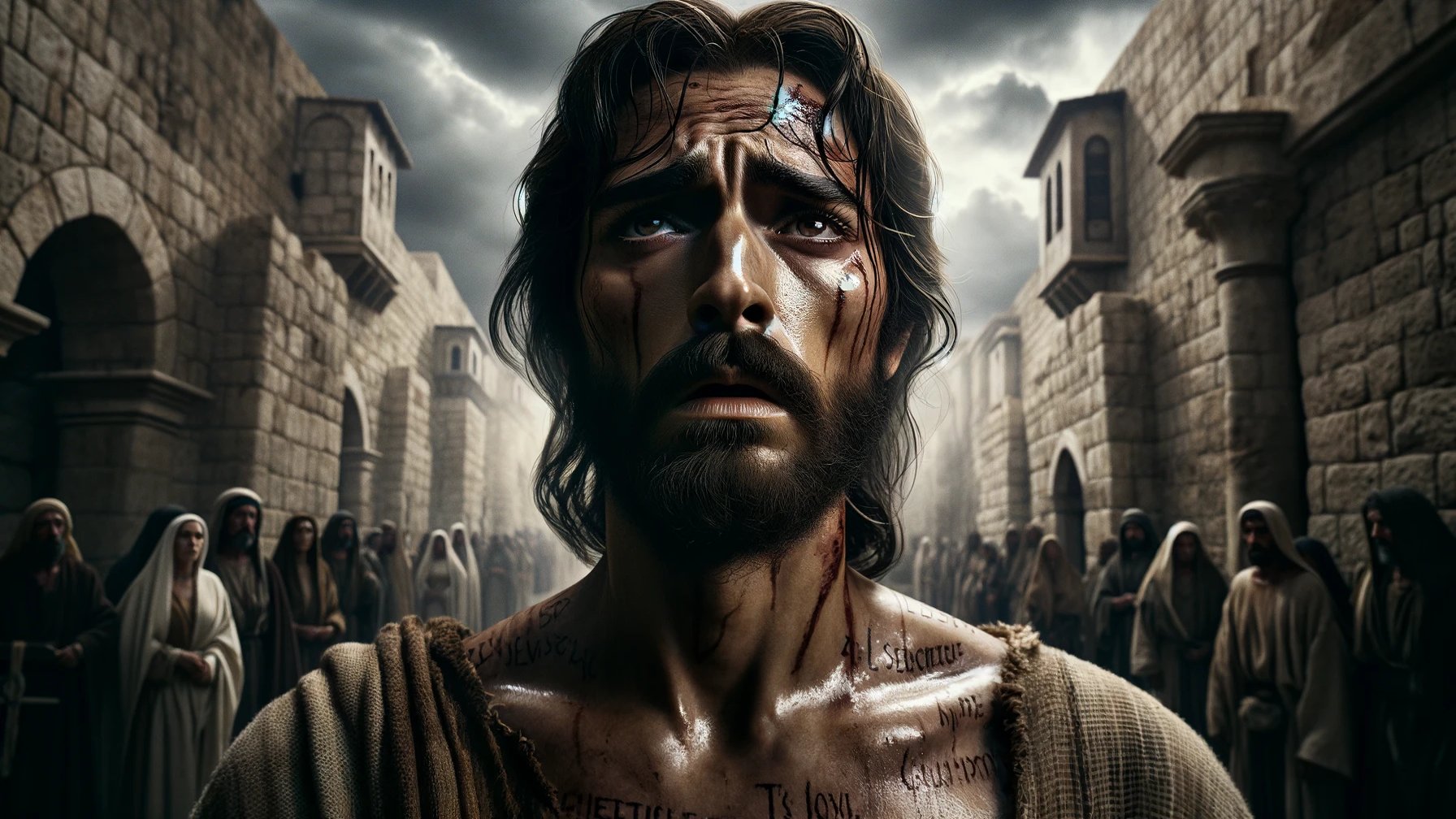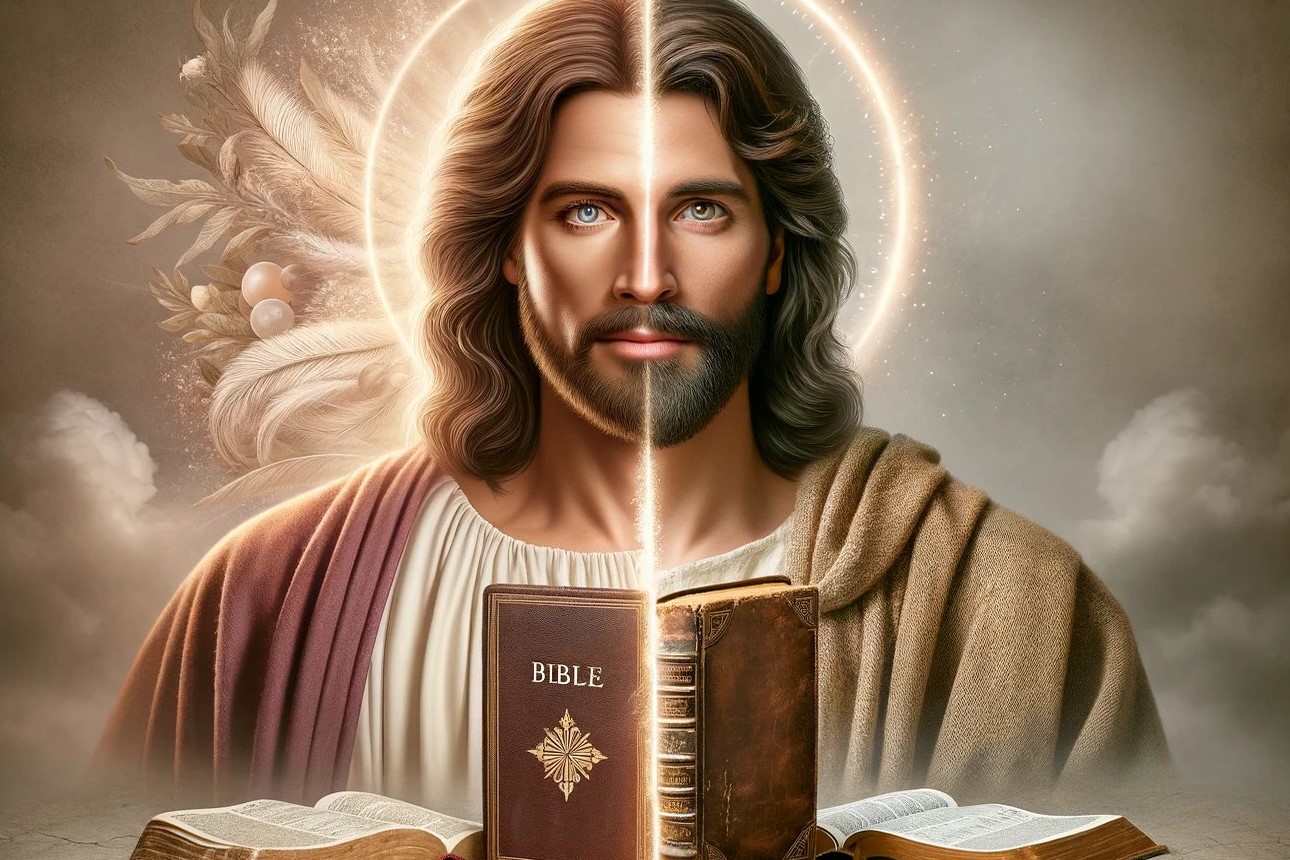Home>Christian Videos>Bible Stories>Who Was Mary Magdalene To Jesus Christ


Bible Stories
Who Was Mary Magdalene To Jesus Christ
Published: March 1, 2024
Ericka Andersen, an editor at Christian.net, expertly merges digital strategy with content creation, focusing on faith and societal issues. Her communication skills enhance the platform's engaging narratives, fostering meaningful dialogue on belief's impact on society.
Discover the significance of Mary Magdalene in the life of Jesus Christ and her role in biblical stories. Uncover the timeless tale of faith and devotion. Explore more about Bible stories.
(Many of the links in this article redirect to a specific reviewed product. Your purchase of these products through affiliate links helps to generate commission for Christian.net, at no extra cost. Learn more)
Table of Contents
Introduction
Who was Mary Magdalene to Jesus Christ? This question has intrigued and fascinated people for centuries. Mary Magdalene is a figure shrouded in mystery and controversy, yet she played a significant role in the life of Jesus Christ. In this article, we will delve into the background of Mary Magdalene, her relationship with Jesus, her role in his ministry, her witness to his crucifixion and resurrection, the misconceptions and controversies surrounding her, and her lasting impact on Christianity. Join us as we unravel the enigma of Mary Magdalene and her connection to Jesus Christ.
Mary Magdalene's Background and Relationship with Jesus
Mary Magdalene, often depicted as a repentant sinner, was a woman from the town of Magdala, located on the western shore of the Sea of Galilee. Not much is known about her early life, but it is believed that she was a woman of means and influence. Mary Magdalene's encounter with Jesus is a pivotal moment in her life. According to the Gospels, she was possessed by seven demons, and Jesus miraculously healed her, freeing her from their torment. This profound experience created a deep and lasting bond between Mary Magdalene and Jesus. She became one of his most devoted followers, accompanying him during his ministry and witnessing his teachings and miracles firsthand. Mary Magdalene's unwavering loyalty and love for Jesus set her apart as a central figure in the life of the Messiah.
- Mary Magdalene hailed from the town of Magdala, situated on the western shore of the Sea of Galilee.
- Her encounter with Jesus led to her miraculous healing from possession by seven demons.
- This transformative experience forged a deep and enduring connection between Mary Magdalene and Jesus.
- She became a devoted follower of Jesus, accompanying him during his ministry and witnessing his teachings and miracles firsthand.
- Mary Magdalene's unwavering loyalty and love for Jesus distinguished her as a central figure in his life.
Mary Magdalene's Role in Jesus's Ministry
Mary Magdalene played a crucial role in Jesus's ministry, standing out as a prominent female disciple among his followers. Her presence alongside Jesus during his travels and teachings exemplified her dedication and commitment to his mission. Mary Magdalene's unwavering support extended beyond mere companionship; she actively contributed to the sustenance of Jesus and his disciples. Her financial resources helped fund their endeavors, ensuring that the ministry could continue its work. Furthermore, Mary Magdalene's role extended to providing emotional and spiritual support to Jesus and his followers. Her steadfast presence during challenging times, such as Jesus's crucifixion, demonstrated her resilience and loyalty. Mary Magdalene's involvement in Jesus's ministry transcended societal norms, highlighting the significant impact of her contributions to the spread of his teachings and the establishment of the early Christian community.
- Mary Magdalene stood out as a prominent female disciple among Jesus's followers.
- Her dedication and commitment to Jesus's mission were evident in her presence alongside him during his travels and teachings.
- Mary Magdalene's financial resources played a crucial role in funding the ministry's endeavors, ensuring its continuity.
- She provided emotional and spiritual support to Jesus and his disciples, demonstrating her multifaceted contribution to the ministry.
- Her unwavering presence during challenging times, such as Jesus's crucifixion, showcased her resilience and loyalty to the cause.
- Mary Magdalene's involvement in Jesus's ministry defied societal norms and significantly contributed to the spread of his teachings and the early Christian community's establishment.
Mary Magdalene's Witness to Jesus's Crucifixion and Resurrection
Mary Magdalene's unwavering devotion to Jesus was most evident during the pivotal events of his crucifixion and resurrection. As Jesus endured the agony of the cross, Mary Magdalene stood steadfastly by his side, bearing witness to the profound suffering he endured for the salvation of humanity. Her presence at the crucifixion exemplified her unyielding loyalty and love for Jesus, despite the perilous circumstances. Following Jesus's crucifixion, Mary Magdalene remained resolute in her commitment to him, playing a significant role in the events surrounding his resurrection. According to the Gospels, Mary Magdalene was among the first to visit Jesus's tomb after his burial, only to discover that the stone had been rolled away and the tomb was empty. This momentous encounter with the risen Christ solidified Mary Magdalene's pivotal role as a witness to the miraculous resurrection, a foundational event in the Christian faith. Her steadfast presence during these profound moments underscores her integral part in the narrative of Jesus's crucifixion and resurrection, shaping the foundational beliefs of Christianity.
- Mary Magdalene stood by Jesus during his crucifixion, demonstrating her unwavering loyalty and love for him.
- She played a significant role in the events surrounding Jesus's resurrection, being among the first to visit his tomb and witness the miraculous empty tomb.
- Her pivotal role as a witness to the resurrection solidified the foundational beliefs of Christianity and the narrative of Jesus's triumph over death.
The Misconceptions and Controversies Surrounding Mary Magdalene
Mary Magdalene's historical portrayal has been marred by misconceptions and controversies that have persisted through the centuries. One of the most enduring misconceptions is the conflation of Mary Magdalene with the unnamed sinful woman who anointed Jesus's feet in the Gospel of Luke. This conflation has led to the widespread mischaracterization of Mary Magdalene as a repentant prostitute, despite the lack of scriptural evidence to support this claim. The conflation of these distinct biblical figures has contributed to the perpetuation of a false narrative surrounding Mary Magdalene's identity and reputation.
Furthermore, Mary Magdalene has been the subject of various interpretations and speculations, often depicted in art and literature in ways that diverge from her biblical portrayal. These artistic and literary representations have contributed to the creation of a mystique surrounding Mary Magdalene, leading to further misconceptions about her character and role in Jesus's life. Additionally, the portrayal of Mary Magdalene in popular culture, including novels and films, has at times sensationalized and distorted her story, adding to the complexities of separating fact from fiction.
Another source of controversy surrounding Mary Magdalene pertains to her relationship with Jesus. While some historical and religious interpretations have sought to downplay the significance of Mary Magdalene's role among Jesus's disciples, others have proposed alternative narratives, including the notion of a romantic relationship between Mary Magdalene and Jesus. These divergent interpretations have sparked debates and controversies within religious and scholarly circles, contributing to the enigma surrounding Mary Magdalene's true nature and her connection to Jesus.
Moreover, the discovery of ancient texts, such as the Gospel of Mary and the Gospel of Philip, has fueled scholarly discussions and debates about Mary Magdalene's role and influence within early Christian communities. These texts, which present alternative perspectives on Mary Magdalene's relationship with Jesus and her teachings, have added layers of complexity to the ongoing discourse about her significance in the early Christian movement. The interpretation and integration of these ancient texts into the broader understanding of Mary Magdalene's legacy have contributed to the multifaceted nature of the controversies surrounding her.
The misconceptions and controversies surrounding Mary Magdalene have persisted over time, shaping the diverse interpretations of her identity and significance in religious and cultural contexts. As scholars continue to explore and reevaluate historical evidence and narratives related to Mary Magdalene, the complexities and controversies surrounding her legacy remain an enduring subject of inquiry and debate.
Read more: Who Is Jesus Christ’s Mother
Mary Magdalene's Legacy and Impact on Christianity
Mary Magdalene's legacy reverberates through the annals of Christianity, leaving an indelible mark on the faith and its adherents. Despite the historical misconceptions and controversies surrounding her, Mary Magdalene's enduring impact on Christianity is profound and multifaceted. Her unwavering devotion to Jesus Christ and her pivotal role as a witness to his crucifixion and resurrection have solidified her place as a central figure in the narrative of Christian salvation. Mary Magdalene's legacy extends beyond her historical portrayal, encompassing her influence on early Christian communities and her symbolic significance in the development of Christian theology and spirituality.
1. Symbol of Redemption and Devotion
Mary Magdalene's portrayal as a repentant sinner turned devoted follower of Jesus Christ has positioned her as a symbol of redemption and unwavering devotion. Despite the lack of scriptural evidence linking her to the sinful woman who anointed Jesus's feet, the conflation of these figures has contributed to the enduring image of Mary Magdalene as a symbol of repentance and spiritual transformation. Her journey from torment to liberation through her encounter with Jesus exemplifies the transformative power of faith and serves as a source of inspiration for believers seeking redemption and renewal.
2. Witness to the Resurrection
As one of the first witnesses to the empty tomb and the risen Christ, Mary Magdalene's testimony holds profound significance in the foundational beliefs of Christianity. Her steadfast presence at the tomb and her encounter with the resurrected Jesus underscore the pivotal role of women in the proclamation of the Gospel and the validation of Jesus's resurrection. Mary Magdalene's witness to this transformative event serves as a testament to the central tenet of Christian faith, shaping the narrative of Jesus's triumph over death and the promise of eternal life for believers.
3. Influence on Early Christian Communities
Mary Magdalene's influence extended beyond her direct interactions with Jesus, encompassing her role in the early Christian movement. The Gospels depict her as a prominent figure among Jesus's followers, highlighting her contributions to the sustenance of his ministry and the support of his disciples. Her financial resources and unwavering commitment to Jesus's mission played a vital role in the propagation of his teachings and the establishment of the early Christian community. Mary Magdalene's presence and contributions exemplify the diverse and inclusive nature of the early Christian movement, challenging societal norms and shaping the communal ethos of the burgeoning faith.
Read more: Who Were Jesus Christ’s Siblings
4. Symbol of Feminine Spirituality and Leadership
In contemporary Christian discourse, Mary Magdalene has emerged as a symbol of feminine spirituality and leadership, challenging traditional gender roles within religious contexts. The reevaluation of her historical portrayal has sparked discussions about the significance of women in the development of Christian theology and the leadership roles they have played in the dissemination of the Gospel. Mary Magdalene's resilience, unwavering faith, and pivotal role in the foundational events of Christianity have inspired contemporary interpretations that emphasize the importance of women's voices and contributions within the faith tradition.
Mary Magdalene's legacy and impact on Christianity continue to resonate through the centuries, transcending the complexities of historical interpretation and cultural representation. As a symbol of redemption, devotion, and witness to the resurrection, she embodies the enduring themes of faith, transformation, and the inclusive nature of Christian salvation. Her influence on early Christian communities and her symbolic significance in contemporary theological discourse reaffirm her enduring legacy as a central figure in the narrative of Christianity.


